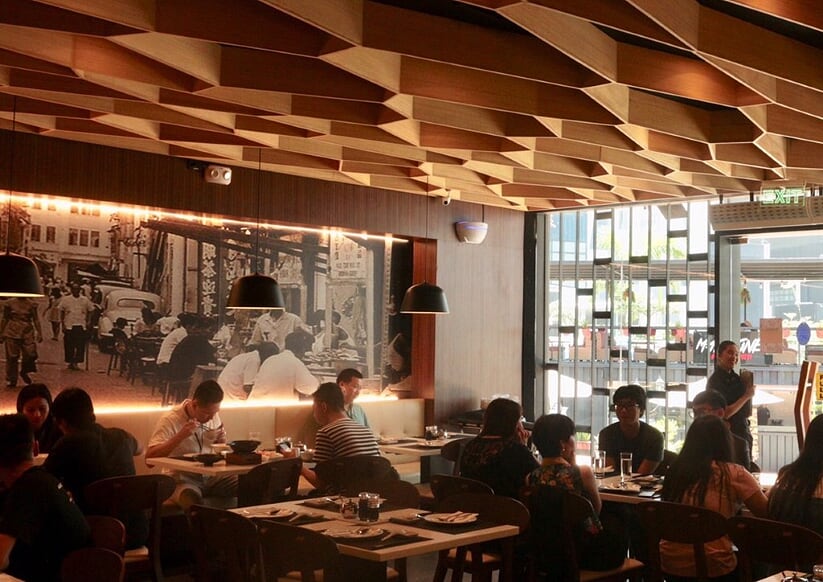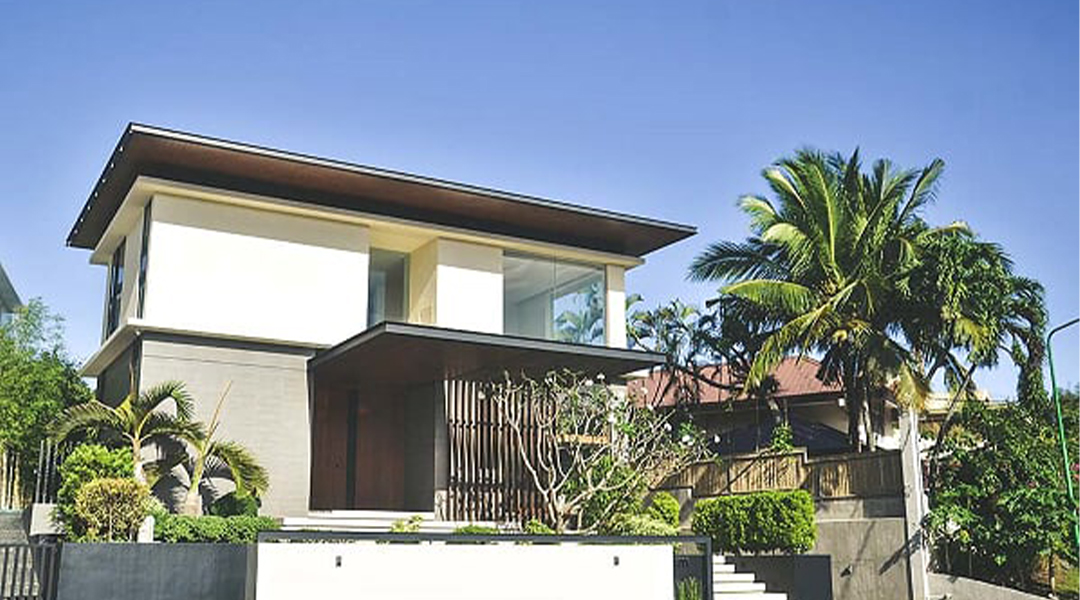The hands that formed Habúlan And Ngo Design Studio Co. are Architects Yonni Habúlan and Maricris Ngo. Before establishing their very own firm, the two worked on two separate offices, with Habúlan working at Lor Calma & Partners and Ngo working at GF and Partners. The two actually met in second year college, both studying Architecture at the University of Santo Tomas. During the interview, they recalled how they always worked on plates together, usually with a certain group. Years after graduating and learning through jobs, Habúlan and Ngo tried to set up their own practice. “Once we got our licenses, we got a certain itch and we thought: what if we try it on our own? We started as a home office,” shares Habúlan.
HANDStudio has since crafted numerous projects, one of which is their vision for the old Capitol grounds in Rizal featured in BluPrint’s Design Better book. The studio also designed the first authentic bak kut teh (pork rib soup) concept restaurant in Manila, Rong Hua Bak Kut Teh.

Principals Habúlan and Ngo said that when it comes to projects, they try to set certain divisions on tasks that further improve their individual strengths. They also shared that no matter how long they have known each other, there are still difficulties that occur, both personal and professional. We visited the HANDesign Studio office and conversed with this talented tandem on things business, personal and when these two aspects collide.
BluPrint: How do you manage to separate your personal and business issues?
Ngo: Actually, there are times that our emotions affect our work but we try to be professional as we can be. Because at the end of the day, whatever happens, good or bad, we are the ones who will mostly be affected by our decisions. We try to separate our emotions and our personal issues from our business.
Habúlan: We look at the long term plan or the main goal of what we’re really discussing. It may sometimes be stressful here at work but we always have to sort it out. Basically, what we always do is always directed for the betterment of what we’re pursuing.
What was your first project together?
Ngo: Our first project was a house in Bacoor, Cavite. It actually went well because we had another project with the same client. We can say that we had earned their trust.
Habúlan: It was the first project that we worked on where we also did construction, partnering with a contractor. It was a project of more than a year. It taught us how to look at things, how to put things together. We’d like to believe we work better together now since we were able to identify our individual and team strengths. I handle more of the creative direction, she handles the technical and the planning.
Do you agree with this statement: it’s difficult for real-life partners to be business partners, why or why not?
Habúlan: I think there are pros and cons. Pro is at least you get to be together. In terms of the con, sometimes you tend to mix work with personal things and emotions. It’s more of how you try to find a balance so that work stress should not reach your home. Overall, it’s a wonderful experience. We know that when we make decisions, it’s for both of us and for our individual improvements.

Is your relationship as business partners similar to your relationship as real-life partners?
Habúlan: We have a certain way of understanding. She’s the boss at home, I try to be the boss here but of course, we always work together. So the main decisions at home would be coming from her, then I hope I get the upper hand here. (Laughter) I think it’s more of us trying to meet that balance, to make it fun, and to sort of make a division. We feel like if we constantly argue, we might not be productive at all.
Do you go to work together?
Habúlan: Before we had a baby, we used to go to work together, but since we had the baby we had to set days where we can come to work together or I go separately. And who gets to finish the work first? Yeah. Cause I want to go home, but before I was like the one who always finishes last, I tend to spend so much time on site. So now since we have a baby, we need to finish work here, but when we get home and the baby’s asleep or we have time to escape, we think and do design.

Was there anything notable that you discovered about each other after becoming business partners?
Habúlan: If there’s something I noticed, I think it’s something that has always been there since I met her.
Ngo: I guess none. Because we’ve known each other since college, doing plates. So even before we got married, we knew each other so well already.
If you were a famous architect or design couple, who would you be?
Habúlan: Us? (Laughter) I don’t know, well we hope to be like the Eames. They’re very collaborative. But of course, we want to be known more as us.
What surprising insights about architecture or building design have you discovered running the firm as partners in business and in real life?
Habúlan: That it’s highly collaborative. Gone are the days that there’s a notion that the architects are the sole entity that basically comes with architecture. It’s a collective effort. We basically live with that and then we practice that as professionals and in partnerships. It’s more on finding strengths and weaknesses, harnessing what we’re good at, and basically focusing on that. We don’t insist on pushing someone else to do something he/she isn’t good at, especially if we know that he/she can do better in a different aspect. We try to complement the strengths and weaknesses we individually have with what we have together, and just move forward.

What traits about your partner makes him or her both an ideal partner in business and in real life?
Ngo: He’s such a positive person. Given that the profession demands so much pressure, so much time, it’s good to know that I have a partner who’s very positive. He always has these ideas that will make me calm down, I always find something good in whatever he tells me, something that will make me look forward. But sometimes those ideas will also make me think, “Okay, I’d have to spend a lot on this” (Laughter)
Habúlan: She’s very detail-oriented, which is very beneficial in terms of work, as well as our personal life. She’s very focused. When she sets a goal, she makes sure she finishes it. It’s very helpful in a lot of aspects. In relation to what she said, at times when I have tons of ideas, she’s the one who keeps me grounded.
Is there anything you would like to say to your partner?
Habúlan: I have nothing but gratitude for everything. Can I say ‘I love you’? That’s about it. I’m just thankful for you for understanding my inconsistencies.
Ngo: I’ll always be here to support you and your ideas. Thank you for being you. It matters so much that whatever happens, you always make sure everything will be alright. And I love you too.
CONTINUE READING: Love Is in the Details: Mendoza and Bermejo of BAAD Studio
Article Credits:
Interview by Denny Mata and Gabrielle de la Cruz
Introduction and edits by Gabrielle de la Cruz
Header photographed by Rochelle Padilla



